#Grégoire May
Text
Järvi/Apkalna: Poulenc/Fauré - Tonhalle Zürich 08.03.2024
Järvi/Apkalna: Poulenc/Fauré - Tonhalle Zürich 08.03.2024 #tonhalleorchesterzürich #paavojärvi #ivetaapkalna #frankreich #requiem #orgelkonzert #musicwasmyfirstloveanditwillbemylast #konzert #konzertbesprechung #review #tonhallezürich

View On WordPress
#Florian Helgath#Francis Poulenc#Gabriel Fauré#Giulia Semenzato#Grégoire May#Iveta Apkalna#Keiko Enemoto#Konzert#Konzertbesprechung#Kritik#Musicwasmyfirstloveanditwillbemylast#Orgelkonzert g-moll#Paavo Järvi#Requiem op. 48#Review#Rezension#Rodion Pogossov#Super flumina Babylonis#Tiago Oliveira#Tonhalle Orchester Zürich#Tonhalle Zürich#Ursina Patzen#Zürcher Sing-Akademie
0 notes
Text

#gregoire courtois#autre#derniere lecture#grégoire courtois#les lois du ciel#bien écrit#mais berk#je vais pas relire
1 note
·
View note
Photo
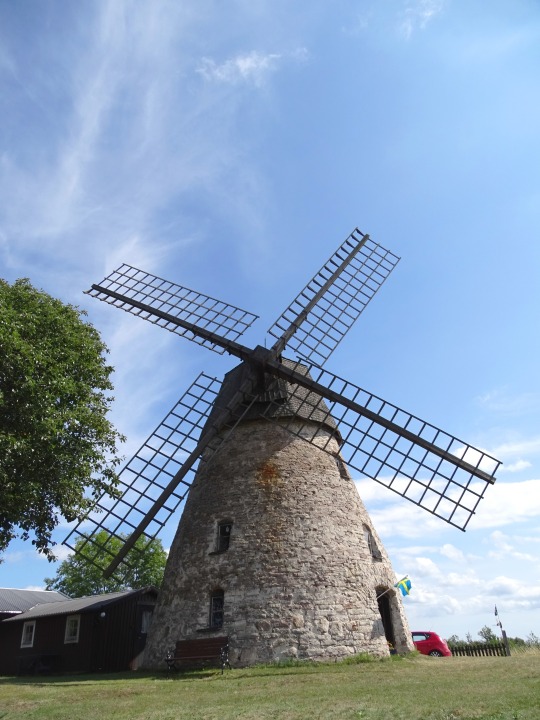
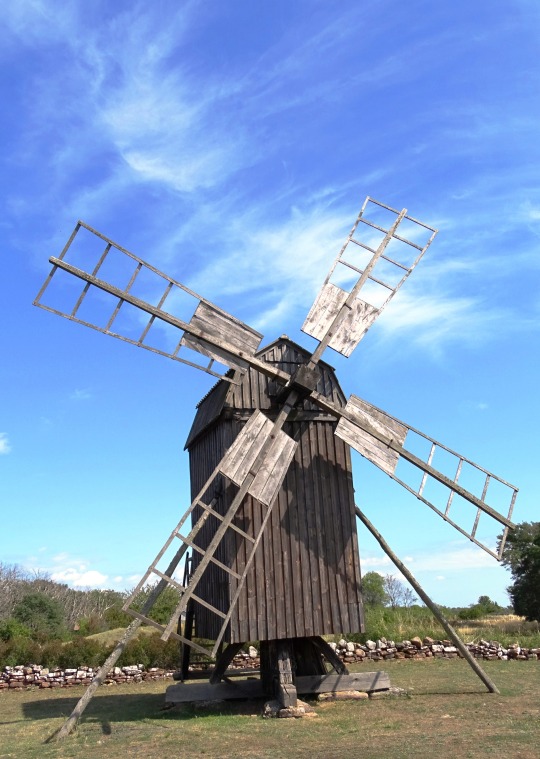
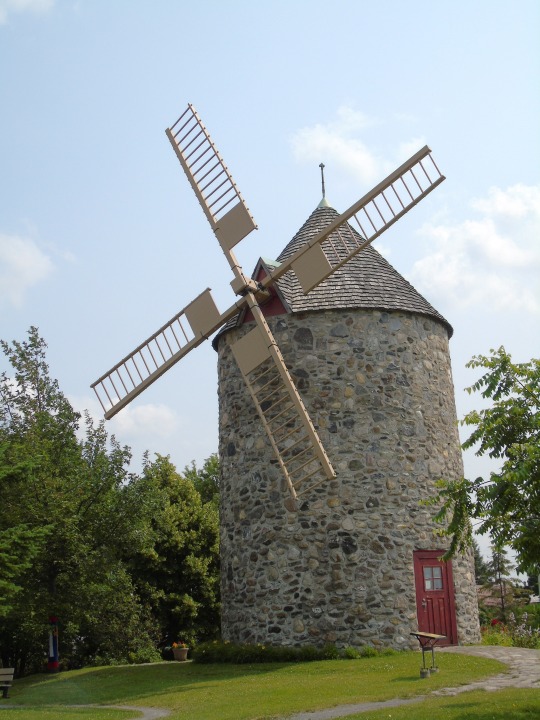
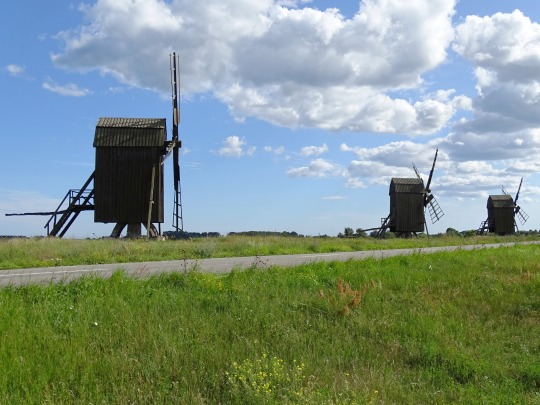
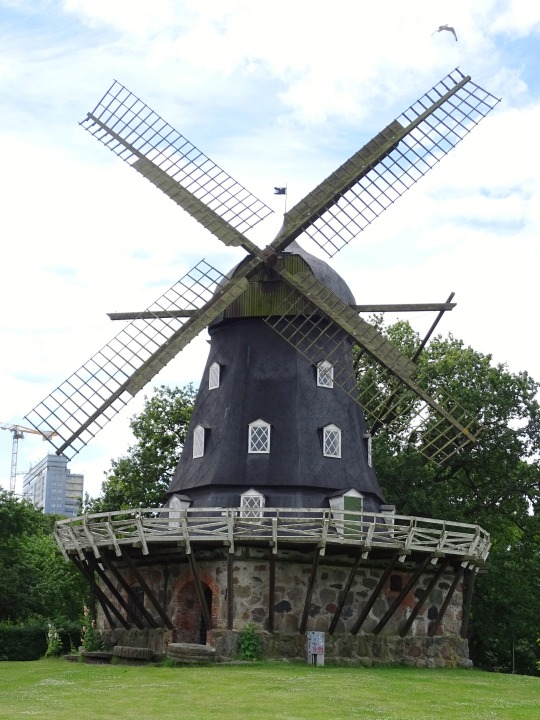
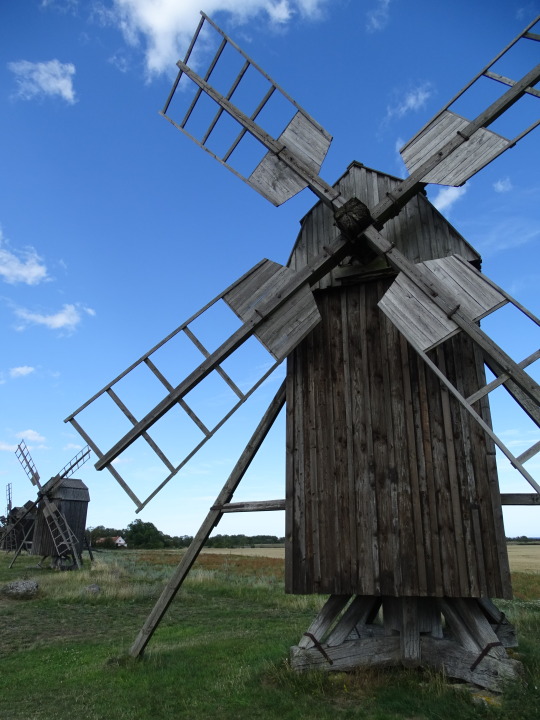
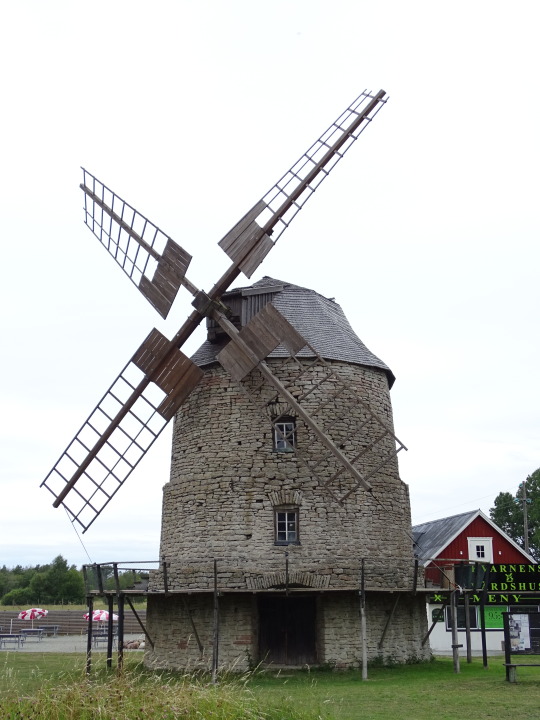
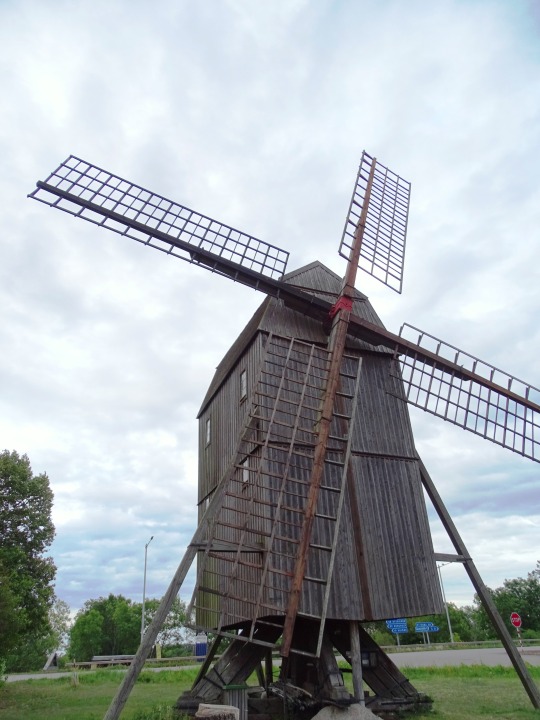
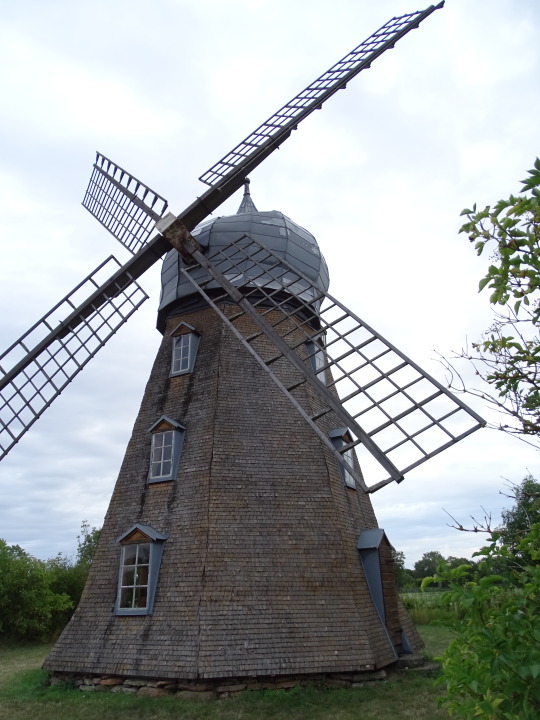
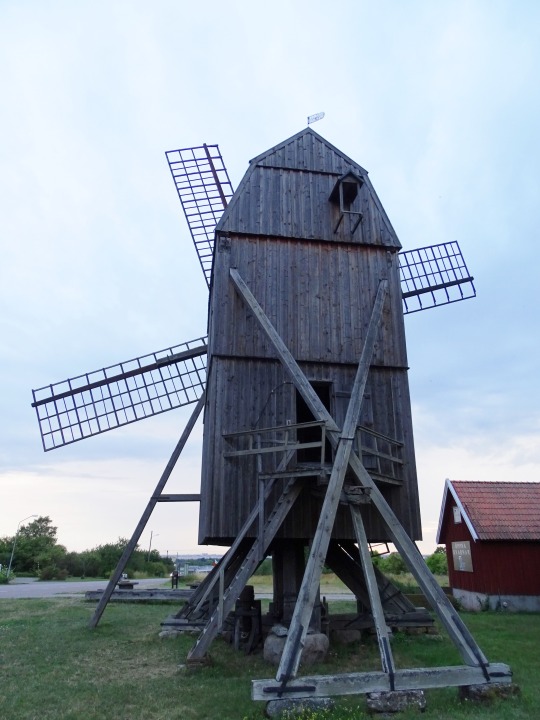
National Windmill Day
Drive out to windmill country, or read up about the history of windmills and how they can provide clean, sustainable energy by harnessing Earth’s natural power.
Most people love them because there’s something absolutely bucolic about their squat structures and the gentle creak of their fins as these wooden structures spin in the natural wind currents. Of course, that describes the old fashioned kind of windmill. The newer, modern versions take on some different characteristics, of course.
Windmills have been around for a very long time, since the time when people first realized it was possible to harness the power of the wind to perform work and provide energy. Ever since new innovations have been made with the ability to utilize the never-ending source of power that windmills capture.
National Windmill Day commemorates the origins of the windmill as well as how it has helped to shape technology and industry from the past and into the future. It’s time to learn about and celebrate National Windmill Day!
History of National Windmill Day
The idea of capturing the power of the wind to perform work isn’t new and, in fact, it goes back far further into history than most people would suspect. Since then, its use has sprung up in multiple cultures throughout the world.
Heron of Alexandria, who lived in the first century AD, was the earliest person known to have harnessed the energy of moving air to perform work, using a very primitive device to power, of all things, a musical instrument: the organ. The people of Persia also developed more traditional windmills, though they had a different orientation than the ones most people typically think of when hearing the word ‘windmill’.
Some historians think that the Persian models were the inspiration for the vertical models that were developed later on in the middle ages. The evidence of one of the oldest windmills that remains today can be found in Weedley, Yorkshire, England and is said to have been built in 1185. As is commonly depicted in media, these machines were used primarily to grind grain, and have been for many centuries since that time.
Recently though, at least in the last 150 years or so, there’s been a growing movement to use windmills in another fashion entirely. The power of the wind can be harnessed to turn giant wind turbines which in turn generate clean, and virtually unlimited, renewable energy.
Windmills have been around for a long long time, and while they may seem like primitive tech, they’ve moved into the world as hope for a clean future. Along with solar, bio-fuel, and fuel cells, windmills are working to save the environment.
National Windmill Day Timeline
644 AD First reference to windmills
Beginning as horizontal mills with woven reed blades that radiate from a vertical axis, these first windmills are built in Persia.
11th Century AD Windmills are used for food production
In the Middle East, windmills are used to help produce food and the ideas are then taken to Europe by merchants and crusaders.
1300s Windmills are used to drain water
The Dutch people of the Netherlands realize that the water from their low-lying areas can be drained using windmills.
1600s Windmills are introduced to the New World
When the Dutch colonize New Amsterdam (now called New York City), they bring their windmill designs with them.
1887 First large scale power generating wind turbine
Charles F. Brush builds a huge 60-foot windmill with a whopping 144 blades in Cleveland, Ohio.
How to Celebrate National Windmill Day
Learn More About Windmills
Well perhaps to first thing to do is start by reading up on the topic of windmills. One of the best things that can be done to celebrate the day is to get more educated on the history of windmills, to begin learning how they’re helping us today, and even to share that information with others. As one of the fastest growing sources of energy in the world, it’s worth learning more about!
Here are some interesting facts about windmills:
The first modern version of the wind turbine was built in Vermont, USA in the 1940s. Its success was not long lived due to war shortages and the next time a windmill would rival it in size would be in 1979.
Hawaii, USA hosts the world’s largest wind turbine, which is the height of a 20 story building and its blades are the length of a football field.
Offshore wind is particularly effective. In Europe, one offshore wind turbine (located in the water) can power more than 1500 homes.
Read Don Quixote
Famous (or perhaps, infamous) for his mistake in thinking that windmills are giant monsters, Don Quixote bravely rides toward them to do battle and, of course, eventually gets knocked off his horse. This is just one of the many beloved and memorable scenes in this classic novel by Spanish author, Miquel de Cervantes, published in 1606.
Visit Holland for National Windmill Day
While not necessarily the first place to house windmills, Holland (now known as The Netherlands) has a long history with them as they were the first place to use them to move water from low lying lands.
In fact, the second Saturday and Sunday in May (because one day just isn’t enough!) are celebrated in Holland as “National Mill Day”, which is called Molendag in Dutch. This is a day when 950 windmills and watermills will open their doors to the public for visitors to see their inner workings first hand and learn more about them. Plus, many of them will also host fun events for the local community and tourists alike.
Whether in Amsterdam or throughout the rest of this country filled with canals and waterways, the windmills are stunning. It’s even possible to go on a bike tour of the mills to visit some of the most beautiful, iconic and picturesque mills in the world!
Those who find other countries in Europe to be more accessible can celebrate National Windmill Day in the United Kingdom, Germany, Switzerland and other countries, where it is often referred to as National Mills Day.
Watch Some Windmills
For those who happen to live in an area that has a single windmill or a whole windmill farm, it might be fun and interesting to go out and watch them turn, turn, turn… (Are we the only one hearing that song now?) More and more communities are dotting them about the landscape as a sustainable source of power. As you gaze upon and contemplate just how important these are to a bright, pollution-free future for our children, enjoy watching their soothing motion and consider their history too.
Source
#Saint-Grégoire-le-Grand#Québec#Canada#2015#architecture#travel#cityscape#original photography#National Windmill Day#NationalWindmillDay#second Saturday in May#14 May 2022#Sweden#summer 2020#Sverige#Malmö#Öland#Kalmar County#Castle Mill#Resmo#Karlevi Dutch Windmill#Lerkaka#Högby#Kvarn Drottningen#Kvarnkungen#Färjestaden#exterior
0 notes
Text



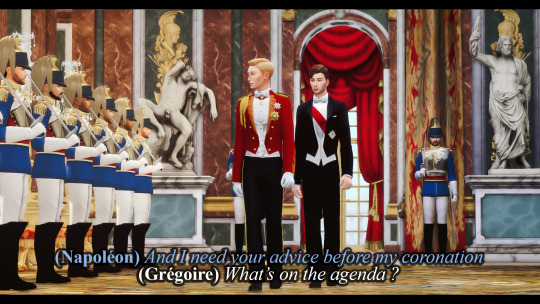



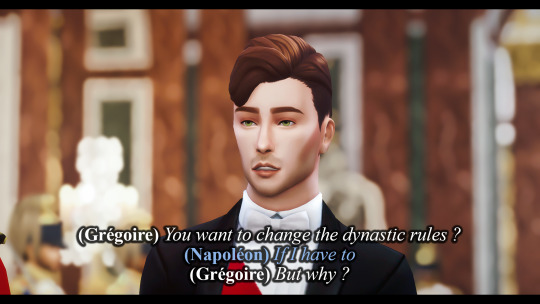



⚜ Le Cabinet Noir | Episode III, N°5 | Francesim, Versailles, 26 Thermidor An 230
Emperor Napoleon V wanted to talk to his Council of State about the fundamental laws of the Empire. He was concerned about the place and power that his grandfather, Louis Simparte, might have in the imperial family. His Majesty went to the meeting with his friend and newly appointed councillor, Grégoire.
Beginning ▬ Previous ▬ Next
⚜ Traduction française
L'empereur Napoléon V souhaite s'entretenir avec son Conseil d'État à propos des lois fondamentales de l'empire. Il s'inquiète de la place et du pouvoir que pourrait avoir son grand-père, Louis Simparte, dans la famille impériale. Sa Majesté se rend à la réunion en compagnie de son ami et conseiller, Grégoire, fraîchement nommé.
(Grégoire) Ton oncle est resté à Paris ?
(Napoléon) Oui, il ne sera pas là exceptionnellement
(Napoléon) Et j'ai besoin de vos conseils avant mon sacre
(Grégoire) Qu'est-ce qui est à l'ordre du jour ?
(Napoléon) Je veux étudier les lois fondamentales de l'empire
(Grégoire) Oh, je m'attendais à autre chose.
(Grégoire) La situation avec l'autre Louis, par exemple
(Napoléon) C'est à propos de lui, en fait
(Grégoire) Tu veux changer les lois dynastiques ?
(Napoléon) S'il le faut
(Grégoire) Mais pourquoi ?
(Grégoire) Ton grand père ne veut pas du trône, ou rejoindre la famille impériale
(Napoléon) Il en fait partie malgré lui. Tout le monde attend que je me prononce sur lui. Nous devons clarifier sa position dans notre famille
#simparte#ts4#ts4 royal#royal simblr#sims 4 royal#sim : louis#sims 4#sims 4 fr#ts4 royalty#sims 4 royalty#sim : gregoire#le cabinet noir#episode iii#versailles#sims 4 royal family#ts4 royal simblr#ts4 royal family#ts4 royals#royal sims
38 notes
·
View notes
Note
[ 𝐯𝐢𝐨𝐥𝐞𝐧𝐭 ] : sender has harmed someone who threatened the receiver. ( prime minister bernadetta stand back im about to drop fodlans greatest hit. its called Meteor )
* for you i would.
mother says there are locked rooms inside all women. sometimes, the men—they come with keys; and sometimes, the men—they come with hammers.
the stack of reports drops to the floor in a flood of loose leaf. bernadetta, hands still suspended mid-clutch, gawks at the woman in the doorway whose figure cuts a perfect picture from every possible angle.
and the both of them already know.
"dorothea, you didn't!"
but dorothea, she did. and some years ago bernadetta would have been petrified—in some small form, the gnaw of anxiety might always haunt her. old habits die hard. she has learned since, however, that sometimes it is the men who die far harder...
a meteor, from dorothea? and grégoire lives still? if bernadetta weren't shaking she might have fussed up a storm for the both of them to go hide right now. bar the doors and the windows with all the furniture in the room. she is shaking at the shoulders, soundlessly at first—with her head having lowered, trimmed fringe veiling her eyes.
"...p...pfft..."
a meteor to the head. isn't that something?
"pfft—" bernadetta lets out a noise—a sob?—before her head throws backward, in fact, with an unmistakable bubble of laughter. "h-hah! ahaha!"
there are times she may be an absolute whirlwind, a string of shrieks or a seemingly impossible case. but dorothea knows all of this, all of her, already. dorothea learned everything and still never ran—never let bernadetta run from her friendship, either. bernadetta laughs and giggles until her lungs might give out. what she wouldn't give to see the look on his face!
dorothea, who wouldn't give up on her despite everything. where countless others had lost their patience, concurred with bernadetta that she was a lost cause, dorothea had stayed. proved she was strong enough to fight off bernadetta's fears. proved it again, just now.
(watched while bernadetta eventually grew strong enough, too.)
bernadetta abandons her reports and dives fearlessly into dorothea arnault's embrace. they grin, they talk, and they laugh, over and over until the scarlet sun sets.
#encantresse#and everyone clapped!#s: ⚘ * godhood‚ like girlhood: a begging to be believed. | encantresse#asks /#bikini bottom narrator vc ahhhh yes another day in my element (post-academy bern who i only ever wrote before toa tbh. whiplash so real)#she's so much happier and i love her i love her I LOVE THEMMMM THEYRE THE GIRLS EVER GGGRRRRRRRRRAAAAAAAAAAAAAAAAA#DOROTHEA WHO IS ONE OF 2 PPL (3 depending on route) WHO IMPACTED HER CHARACTER SO HARD GGGRRRRARHRRARGURUUAAAARUERRAAGAAAA AGRGRGGURGUA#ok. sorry. normal again heehee (jk) (rereading comparisons of her pre + post timeskip dialogue and heaving)#i know damn well this girl did not change her wardrobe and get a hot glow up without dorothea's help either she said bern honey look at me.#look. look at me. your new dress is gonna fit like a fucking glove. WE'RE SHOWING MORE SKIN!!!! YOU ARE BEAUTIFUL WITH YOUR BURN SCARS!!!!#i lvow yuouoyuu
14 notes
·
View notes
Text
Have you read...
note: If you did not finish but feel you read enough to form an opinion, you may choose a ‘Yes’ option instead of 'Partly' (e.g., Yes, I didn’t like it). Interpret "neutral or complicated" however you like, I intended this category to be a broad option between like and dislike.

Twelve six-year-olds and their three adult chaperones head into the woods on a camping trip. None of them make it out alive.
submit a horror book!
#The Laws of the Skies#Grégoire Courtois#horror books#horror#bookblr#books#french horror#thriller books#horrorbookpoll
11 notes
·
View notes
Photo


Here are the books I read last month and this month!
April
Gérard de Nerval, Les filles du feu, 1854 | 5/10
Jacques Ellul, Le bluff technologique, 1988 | 7/10
Julien Gracq, Les eaux étroites, 1976 | 7/10
Hermann Broch, La mort de Virgile, 1945 | 5/10
Georg Luckás, L’antifascisme en littérature, 1938 - 1942 | 6/10
Albert Ollivier, Le Dix-huit Brumaire, 1959 | 3/10
May
André Gorz, Métamorphoses du travail, 1988 (not pictured) | 7/10
Grégoire Chamayou, Les chasses à l’homme, 2010 | 7/10
Patrick Süskind, Le parfum, 1985 | 6/10
Paul Gadenne, La plage de Scheveningen, 1952 | 8/10
Jaggernaut n° 1, 2019 | 7/10
Pour les utilisateurs éventuels de Senscritique, vous pouvez m’ajouter dessus (mon pseudo, c’est doriavcn) !
#do reads#giving marks instead of making comments this time#because i felt lazy#and because it feels like no one reads them anyway!#but i would be glad to talk about any of these books!#book#books#bookblr#book blog#reading#reading journal#currently reading#reading recap#reading suggestions#read in 2023#bookworm#book recommendations#book recommendation#book rec#book review#book reviews#book pile#book pic#de nerval#gérard de nerval#jacques ellul#julien gracq#hermann broch#Georg Lukacs#andré gorz
30 notes
·
View notes
Text
le truc c'est qu'il dit qu'il veut nous voir insoumis et heureux mais aussi qu'il faut partir bien plus loin que la grève politiquement c'est trop confus comme chanson
8 notes
·
View notes
Text
Le centre de Paris interdit à Airbnb ? Ce qui semblait impensable il y a dix ans est en passe de devenir réalité : la ville de Paris va interdire les nouveaux meublés touristiques dans les quartiers de la capitale qui souffrent d’un déficit de logements, comme le Marais, le Sentier, le Quartier latin ou la butte Montmartre. La mesure devrait être gravée dans le marbre du futur Plan local d’urbanisme (PLU), en cours de révision. [...]
«No-go zones»
La mairie centrale travaille actuellement, main dans la main avec les mairies d’arrondissement et l’Atelier parisien d’urbanisme (Apur), à délimiter ces zones, qui devraient inclure au moins Paris Centre (Ier, IIe, IIIe et IVe arrondissements) et Montmartre (XVIIIe). Une carte de ces «no-go zones» pour les nouveaux Airbnb sera présentée aux élus parisiens lors du conseil municipal de juin, qui sera consacré à l’examen puis au vote du plus gros chantier de la deuxième mandature d’Anne Hidalgo : la révision du PLU, le document qui définira les nouvelles règles de construction, de transformation et de création d’espaces verts pour au moins les dix années à venir.
«Nous voulons mettre un coup d’arrêt à la création de nouveaux meublés dans les secteurs où il n’y a quasiment plus de résidents permanents», a expliqué jeudi Emmanuel Grégoire, le premier adjoint PS, chargé de l’urbanisme, lors d’une déambulation dans le quartier du Sentier. «Si on ne veut pas que Paris se transforme en Venise, il ne faut pas laisser faire le marché», a ajouté le bras droit d’Anne Hidalgo. L’interdiction, a-t-il précisé, ne s’appliquera pas aux Parisiens qui louent leur résidence principale, dans la limite de 120 jours par an, mais uniquement aux investisseurs professionnels.
Ici, rue de la Lune , c’est un immeuble entier qui a été progressivement «mité» par les locations touristiques. «Petit à petit, des gens ont racheté les appartements qu’ils ont transformés en meublés touristiques. Au bout d’un moment, vous vous retrouvez avec une sorte de résidence hôtelière», explique Dorine Bregman, adjointe chargée des commerces et du tourisme à la mairie de Paris Centre. «Il y a toujours eu des propriétaires bailleurs à Paris, pour obtenir un complément de revenus pour la retraite, par exemple, mais quand le phénomène des locations touristiques est arrivé, les gens se sont aperçus assez rapidement que c’était beaucoup plus lucratif de louer à la semaine, voire deux, trois jours, que de louer sous le bail classique de trois ans». Là, rue des Jeûneurs, en plus des appartements dans les étages, c’est le rez-de-chaussée, jusque-là occupé par un local commercial, qui a aussi changé de destination. La vitrine a été opacifiée, et le tour est joué.
«Pendant des années, nous avons été désarmés, puis, avec [l’adjoint au logement] Ian Brossat, on a pu reprendre la main», a reconnu Emmanuel Grégoire. Comme les autres capitales du globe, Paris a d’abord subi, impuissante, la déferlante de ces locations meublées de courte durée, qui ont fait monter les prix et chassé les habitants des quartiers centraux, entraînant avec eux la fermeture de commerces de bouche ou de services à l’habitant, comme les blanchisseries. [...]
La régulation a fait son effet
La France est le deuxième marché mondial pour Airbnb, derrière les Etats-Unis. Première destination touristique mondiale, sa capitale reste une ville de cocagne pour la firme de San Francisco, surtout dans la perspective des Jeux olympiques l’été prochain. D’où l’urgence de compléter l’arsenal juridique mis en place à partir de 2018 par Ian Brossat, à base de régime d’autorisation préalable et de règles strictes de compensation pour les professionnels, en parallèle à l’obligation faite à Airbnb de désactiver les annonces, désormais pourvues d’un numéro d’enregistrement, dont le nombre de nuitées dépasse 120. Ainsi, depuis janvier 2022, tout changement d’usage d’un commerce en meublé touristique est désormais soumis à autorisation de la mairie et les logements transformés en locations touristiques doivent faire l’objet d’une double, voire d’une triple compensation en surface. Il était temps : en à peine deux ans (2020-2022), un commerce sur huit a été transformé en meublé touristique au cœur de la capitale, selon Dorine Bregman, l’adjointe de Paris Centre. De manière générale, la régulation a produit son effet, puisqu’on assiste à un «tassement du nombre de meublés touristiques déclaré», affirme Emmanuel Grégoire.
[...] Longtemps hostile à toute réglementation, au point d’adresser régulièrement des «bras d’honneur» à la mairie, dixit Ian Brossat (1), la plateforme américaine assure aujourd’hui être non seulement en règle, mais avoir renoué avec son mythe fondateur, puisque «les trois quarts des hébergements loués l’an dernier à Paris sur Airbnb étaient des résidences principales ou des chambres chez l’habitant». Omettant de rappeler la bataille qu’a dû livrer la ville de Paris (mais aussi d’autres métropoles régionales et jusqu’à l’île d’Oléron, qui a attaqué récemment la firme en justice) pour récupérer la taxe de séjour. Sans parler des tentatives, infructueuses celles-là, pour qu’Airbnb paie des impôts en France à proportion du chiffre d’affaires qu’y génère son activité : peine perdue, puisque la maison mère est basée en Irlande, un quasi-paradis fiscal.
«Un trou dans la raquette»
Cette offensive pour «déloger» Airbnb n’est pas que parisienne : la municipalité écologiste d’Annecy, victime à son tour de son attractivité, a ouvert la voie en votant fin février la mise en place de quotas de meublés de tourisme pour tenter de faire revenir sur le marché plusieurs centaines de logements. Ces quotas s’appliqueront dès juin dans la commune, qui a été divisée en trois zones, la plus restrictive étant la vieille ville, très touristique. Une mesure jugée «discriminatoire et disproportionnée» par le Syndicat Annecy Meublés, représentant les intérêts des loueurs, qui a annoncé son intention de saisir la justice. Le lobby des professionnels de l’immobilier, qui a déjà eu la peau de l’encadrement des loyers (finalement rétabli), va-t-il repartir à l’attaque contre le régime d’interdiction appelé à se mettre en place à Paris ?
La transformation des logements et commerces en meublés de tourisme étant désormais très encadrée, les élus parisiens redoutent que l’appétit des investisseurs ne se tourne désormais vers les bureaux. D’autant qu’avec la généralisation du télétravail, les besoins des entreprises en m² de bureaux se sont beaucoup réduits. «Ce qui nous manque aujourd’hui, ce sont des déclarations préalables pour la transformation de bureaux en Airbnb, et puis il y a un trou dans la raquette concernant les locations de passoires thermiques, sur lesquelles il y avait une exception pour les meublés touristiques», confirme Emmanuel Grégoire.
Pour boucher ces trous, la ville compte sur la proposition de loi transpartisane visant à «remédier aux déséquilibres du marché locatif en zone tendue», qui sera débattue le 13 juin à l’Assemblée. Selon son corapporteur, le député de la Nupes Iñaki Echaniz, présent lors du déplacement dans le Sentier, son article 2 propose justement «d’étendre aux meublés touristiques le droit de regard des élus», en leur permettant de mettre en place une autorisation préalable à la location touristique. Ce régime dit «de changement d’usage d’un local», bureaux inclus, ne concerne aujourd’hui que les communes de plus de 200 000 habitants et trois départements de la petite couronne francilienne, a précisé le député socialiste.
Véto fiscal de Bercy
Reste le nerf de la guerre : la fiscalité. Relayant une demande ancienne des associations de mettre fin à la «niche fiscale Airbnb», l’article 3 de la proposition de loi suggère de réduire l’abattement dont bénéficient les investisseurs sur leurs revenus locatifs, qui peut aller jusqu’à 71 % ! «Je plaidais aussi pour une révision de la taxe sur les résidences secondaires, mais Bercy ne veut pas en entendre parler», a regretté Iñaki Echaniz. Explication : cette taxe est une majoration de la taxe foncière. En raison de ce «couplage», toute hausse de la première entraîne mécaniquement une hausse de la seconde. Résultat, les maires qui voudraient augmenter la pression fiscale sur les résidences secondaires pour inciter les propriétaires à remettre sur le marché ces logements inoccupés une bonne partie de l’année devront augmenter les impôts locaux. Aucune chance qu’ils le fassent… D’où l’idée portée par le Parti socialiste d’un «découplage», sur lequel Bercy a mis, sans surprise, son veto.
Ce n’est pas comme si la crise du logement ne frappait pas durement, non seulement l’Ile-de-France, mais une bonne partie du littoral atlantique. Le député basque a décrit le défilé dans sa permanence électorale des saisonniers, étudiants ou membres du personnel de l’hôpital de Bayonne, qui ne trouvent plus à se loger «là où ils travaillent et là d’où ils viennent». La raison ? Le boom des meublés de tourisme, qui ont augmenté de 130 % entre 2016 et 2020 dans la communauté d’agglomération du Pays basque. «Même dans l’arrière-pays, les prix montent. Au centre du Pays basque, une maison achetée 120 000 euros il y a trois ans a été remise sur le marché, avec une piscine en plus, à 400 000 euros, a illustré l’élu. Or nos territoires ne sont pas seulement des centres de vacances : on souhaite avoir des gens qui y vivent !»
Dédiabolisation des «méfaits du business»
Alors qu’Airbnb est montré du doigt pour son rôle dans cette crise, la firme a lancé une opération de séduction pour tenter de redorer son image. «Avec la ville de Paris, la relation est forte, il y a toujours des moyens de l’améliorer mais nous serons un partenaire extraordinairement important du logement», a assuré Brian Chesky, son PDG, dans un entretien aux Echos publié mardi. Et, à moins de 500 jours du top départ des JO, elle se décarcasse pour montrer à quel point sa présence sera bénéfique à l’économie française. Par exemple, elle a commandé une étude au cabinet de conseil Deloitte, qui chiffre à 1 milliard d’euros les retombées économiques attendues pour la France. Un chiffre largement repris dans les médias. Ainsi, les quelque 560 000 touristes «qui séjourneront dans des hébergements loués sur Airbnb pendant les Jeux généreraient un milliard d’euros de chiffre d’affaires, 73 millions d’euros de recettes fiscales (dont 15 millions de taxes de séjour) et devraient permettre la création de près de 7 300 emplois équivalents temps plein dans l’année», détaille l’étude.
Du côté des 130 000 hôtes attendus, Airbnb fait miroiter un jackpot : selon Deloitte, ils devraient empocher 221 euros par nuit en moyenne entre le 26 juillet et le 11 août. Soit une hausse de 85 % par rapport au revenu moyen en 2022 (119 euros). «Cette étude n’a pour but que de dédiaboliser les méfaits du business des meublés de tourisme sur notre territoire et de redorer l’image de l’entreprise, s’agace Vincent Aulnay, membre du collectif ParisvsBnB, cité par le Parisien. Oui, il y aura des retombées économiques fortes durant cette période, mais après ? Va-t-on voir encore une vague d’investisseurs jouer au Monopoly dans nos villes ? Trop de jeunes, de foyers modestes ont énormément de mal à se loger, des quartiers se vident, des classes ferment…» Pour ou contre Airbnb ? Après les trottinettes en libre-service, autre marqueur contesté de la «ville ubérisée», la question ne pourrait-elle pas aussi faire l’objet d’une votation citoyenne ?
(1) Voir son livre Airbnb, la ville ubérisée, éd. La Ville brûle, 2018
#real estate#french#upthebaguette#article copié en entier car réservé aux abonnés#enfin j'ai coupé deux trois phrases pour la longueur quand même mais l'essentiel est là#bee tries to talk#air bnb#long post
10 notes
·
View notes
Text
The Bear and the Maiden Fair - part 7
Summary: To reestablish himself in society and align with Count Pierre, your father gives your hand in marriage to Jacques Le Gris, his favorite squire. You, knowing his reputation as a newly established rich squire with little breeding and womanizing ways, are vehemently opposed to the idea.
Oh, I'm a maid, and I'm pure and fair!
I'll never dance with a hairy bear!
A bear! A bear!
I'll never dance with a hairy bear!
The bear, the bear!
Lifted her high into the air!
The bear! The bear!

~Series Masterpost~
Chapter summary: some last minute twists and turns as Jacques gets ready to set off for Cherbourg
CW: short physical altercation, mature towards the end
Word count: ~4.5k
*
On the way back from Lisieux, Jacques thought it was only fair to prepare his one time friend for the potentially turbulent events once they returned to Exmes.
“Are you sure this is what you want to do? From watching you, I didn’t get the impression you wanted this at all.” – Jean frowned at Jacques’ word, adjusting in his saddle to ease some pain in his back. He had often been injured and he suffered an illness not too long ago that left him achy when he was active for too long.
“It’s not me who wants it.” – Jacques’ voice was unusually flat and uncertain. He had not confided about the state of his marriage to almost anyone, let alone someone who would likely gladly use the information against him, but Jean was here and the matter could not be postponed.
“Really? I didn’t get that impression either…” – Jean thought out loud. – “But you did always tell me that I was the only man who was—”
“…blind despite two healthy eyes.” – they finished the sentence in unison and smiled fondly over the many times Jacques had benevolently upbraided his friend. – “Things have taken a… surprising… and pleasant turn recently.” – Jacques confessed and Jean almost balked at his apparent shyness. Jacques Le Gris, whose conquests were stuff of legend, retold like Herculean feats, now quite literally blushed to speak of, of all people, his own wife. – “But you know the danger we are heading into. I believe she will find my arrangement preferable to a period of mourning of two years or more before she can remarry.”
“So you’ve decided very sternly to die then? And you can’t be talked out it? You might have told me this before I agreed to follow you to Cherbourg.” – Jean teased.
“It is a strong possibility, that is all. I don’t expect you or your men to fight battles once you deem them lost. My honor as the warden of that castle, however, compels me to stay when otherwise I would not.”
*
On the road to Exmes, Jacques and Jean’s company came across the archbishop’s retinue. By now all parties were aware of what was unfolding, so the two groups merged in a solemn mood, making their way to Jacques’ castle.
“How is Grégoire?” – Jacques asked in his cheeky tone, dispelling the thick silence that hung around the rhythmic crunching of wheels and clacking of horses’ hoofs.
“The Pope, my lord…” – the archbishop emphasized, admonishing. – “is well, by the grace of God. I would expect a cleric to speak of him with more reverence.”
“I might expect that too.” – Jacques shrugged and Jean bit his lips to keep a chuckle from escaping. – “But my lack of reverence is likely why the church life and I are fundamentally incompatible.”
“That and many other reasons.” – Jean chimed in and Jacques’ chest bubbled with a warm memories of the old, light-hearted friendship they once had.
“Given your request to annul your marriage on the grounds of it being unconsummated, you might reconsider that stance. You may be a man of the church after all.” – the archbishop revealed he was not above petty jibes and Jean’s amusement only grew, evidenced by his distinct muffled laughter in the background.
Jacques took a steadying breath. He was well practiced in the art of taking insults from pompous fools. – “The Pope still hasn’t departed for Rome?” - he changed the subject with ease. – “The Italians are keeping with hands full with their wicked little insurrections, aren’t they?”
“True.” – the archbishop’s response was curt and haughty. The Avignon papacy was quickly coming to an end and there was irreconcilable conflict between the French and Italian legates and governors. – “That is why he couldn’t pay your rather vulgar matter the full scope of his attention. But I’m sure you understand. From what I hear, you have your hands full with your own insurrections up north.”
It was Jacques’ turn to bite his tongue and try to seem nonplussed. The church may be busy with its own wars, but the English were a threat to all of France, not just him. – “The exorbitant fees for these vulgar matters sweeten the pot regardless of how busy the church is with its politics, it seems. After all, you did come on very short notice.”
“You can be a very uncouth man when you endeavor to do so, lord Le Gris.” – the archbishop stuck up his nosy like a petulant duchess. – “I am here because you situation is urgent and dire.”
“And I am eternally grateful, archbishop.” – Jacques gave an exaggerated bow and rode ahead, tiring of the conversation.
*
Instead of welcoming your husbands in the courtyard, Jean sent word ahead to Marguerite to wait in their chamber and Jacques asked that you meet him in the solar. You two parted with concerned looks and you dashed over to wait for the men.
The first to enter was the archbishop, in gilded, glittering robes, flanked by another clergyman. Behind him followed Jacques and Jean, and Louvel came last, closing the door behind them. The small room was fuller than usual and a grave tension filled the air.
The archbishop wasted no breath in reassuring you. He stuck out a soft hand and offered a ring to be kissed. You went down on one knee and did as he expected. Before you could get up, he stated his business. - “Baroness, by the powers vested in me by His Holiness, the Pope, I have come to serve upon you the papers of annulment, formally ending your marriage to squire Jacques Le Gris.”
Your mouth, gaping indecently, tripped him up for a moment, but he recollected and shifted his weight on one foot, lips pursed impatiently, like you were an uncooperative child. – “Since the marriage has not been consummated, my lady, under Christian law, it does not exist.”
Though successfully drawn closed, your mouth refused to speak until you swallowed, hard and uncomfortable. - “My marriage exists, Your Excellency.” – you countered and shot a frantic look over to Jacques, thinking someone must have lied – or, in reality, told the truth – about you to the authorities. He must have been holding back an outburst out of decency or wariness in front of Carrouges.
“The church has this on good authority. I would not have traveled all the way from Avignon under different circumstances.”
“Forgive me, but I don’t know what you mean.” – his tone was far too self-important for your liking. Your eyes narrowed at him and tried to keep your face stern.
The archbishop sighed. - “I have been assured by your husband himself that his wife remains a virgo intacta, my lady. But I am perfectly happy to verify—“
“I’m sure you are.” – you raised an unimpressed eyebrow as you cocked your head him.
The man blustered and Jean snorted, Jacques’s eyebrows shot up in alarm. – “What I mean, naturally, is, I can have it arranged—“
“You will arrange nothing. No annulment is happening here today.” – you crossed your arms over your chest. So this ridiculous, irrational mess was Jacques’ doing. Very well. If you had experience getting furious at someone, it was at him.
The archbishop noticed your sudden confidence too. – “No?”
“No, I am afraid you have been ill informed.”
“My lord?” - he looked over his shoulder, exasperated, like telling a kennelmaster to kick a whining cur and shut him up.
You looked over his shoulder too, gaze scorching. Jacques looked back and you could swear he was pleading with his eyes to just make this easy. – “Perhaps there’s been a misunderstanding.” – you placated, voice taking on a lightness you resolutely did not feel. – “Can I talk to you in private?”
Your dulcet tone was dripping with danger and Jacques deflated as he opened the door for you, looking down as you walked past him.
The small effort of feigning calmness was for naught, since everyone could plainly hear you screaming as soon as the door was shut behind you and you were safely in your bed chamber.
“How dare you do this to me?” – you cracked the question like a whip and Jacques recoiled, mainly from the sharp tone. – “You want to just send me away? Like I’m nothing to you, like I’m some whore at Pierre’s bacchanals?”
“We’re asking me what I want?” – he yelled back with his hands on his chest in question, eyes wide and angry. When you just glared back, he went on. – “Apologies, it’s just so rare that anyone asks me anything at all anymore, I find myself unused to the very idea! To answer you, my Aphrodite, I don’t want that at all! I’m only giving you the option that you so vehemently insisted that you wanted!”
He was so busy gesticulating and finally airing out some of his frustrations, neck laced with furious veins and arms flailing wildly around, that he noticed too late you slipped off a heavy ring. He only registered it when your arm sliced through the air and a moment later, the stone laid in ornate gold pinged off his eyebrow, splitting the skin open. He let out a pained growl and flew at you as you made for one of the glasses resting by a water jug. Jacques snatched you away and the items on the table went clattering down as you pulled on the tablecloth.
He pinned you on the bed, straddling over your hips and sitting down with his considerable weight, pushed your air out in a graceless grunt. He snatched the tablecloth out of your hands so forcefully you wondered for a moment if he ripped out a nail with it. You didn’t get a chance to check as he quickly caught your wrists and pinned those down too.
“And another thing! I am growing less amused by this target practice of yours by the day!” – he raised his voice the closer he got to your face and you shut your eyes, cringing away. You regretted these outbursts as soon as they happened as well, but there was no stopping them when he was just so infuriating. You struggled against his weight and grip, but you knew it was useless. However, he chose to chuckle at your futile efforts, only causing you to redouble them. You did not get yourself so much as an inch loose from him, yet your throat ached from the growls of effort, sweat breaking out, and you finally fell into a limp heap, breathing fast and hard. Jacques waited patiently until you wore yourself out, but he was not fooled. He kept his grip as tight as ever as he asked calmly. – “Am I to understand that you want to stay with me and be my wife? For real this time?”
“Yes, obviously!” – you shot up and he congratulated himself mentally for not letting you go earlier. He knew the kind of hellion he married.
Jacques took his time, watching through the mess of curls that framed his face and obstructed his view, as you panted under him and stared daggers, trying to kill, or at least seriously injure, him for trying to leave you. A dangerous heat seeped into his core, radiating out and surging to cloud his better judgment. He licked his lips and they pulled into a smile, so big and bright it nearly pushed his eyes shut. – “Well, that’s easily arranged. All you had to do was ask.”
He released you and retreated quickly, correctly anticipating you would attack him with your petal fists pulled into buds. - “Don’t think I’ll soon forget this infamy.”
“Oh, I know how long your memory is, my fire-breathing viper.” - Jacques smirked and experimentally lowered his face towards yours. You were suspiciously still and seemed to be calculating something. When he neared even further, he got his face grabbed, crumpled and pushed aside, snorting a laugh into your palm. He sat back and let you sit up, finally getting a proper lungful of air. Then, Jacques got his face grabbed again, this time for you to peck a rough – warning – kiss into his lips that you pursed with you squeezing fingers.
When you emerged from the bed chamber, markedly worse for wear, it was obvious by everyone’s averted eyes that your clash and reconciliation was heard by all.
No one spoke for a moment, unsure about what just happened and what it was supposed to mean, so you raised your chin imperiously and looked at the archbishop. - “The matter is settled, Your Excellency.” – you waited and when he made no move to leave, you grew impatient, looking at all the men standing there like witless statues. – “Leave us.” – your tone bordered on aggressive and Jacques wrapped an arm around your waist; his lips pulled in an awkward line, shooting apologies at his guests with his eyes.
“My lady. I have traveled all the way from Avignon—”
“And I thank you for your pains, truly. If you are so insistent on dissolving marriages, maybe you should look around the castle and the surrounding grounds, you may be surprised what you find.”
“What is that supposed to mean?” – Carrouges frowned, arm twitching reflexively towards his sword.
Jacques flexed his arm around you; not all men were as adept as taking tongue lashings as he was and few were willing to forgive them. – “I only mean I’m sure there are things to keep you occupied around Alençon and Exmes; idle hands are the Devil’s workshop, after all.”
Louvel’s sandy moustache danced from the smiles he was trying to hide – he had a sizeable bet going with his de facto master that you would not accept an annulment and he could already feel his purse getting heavier - and he shuffled his feet loudly on the floor to draw everyone’s attention as he opened the door and held it for the group to file out.
Jean was confused and, frankly, a little disappointed that yet another thing that should have been a loss to his slippery friend turned into an unexpected victory.
You were left alone for mere moments before Louvel cracked the door open, apology already written on his face. – “I’m sorry to disturb, my lord and lady, but the captains and bannerets are getting restless, they need to see you.”
“I know; thank you, Louvel.” – Jacques nodded and waited until he heard his retreating footsteps grow quieter outside the door.
“What possessed you to do this?” – you sighed, asking the most important question first since you had very limited time with him.
Instead of summarizing nearly a year of marriage where he suffered incessant insults and rumors, Jacques raised an eyebrow and his face showed all the disdain and exhaustion that had built in him. There was nothing to say in return that would justify you except that somehow, at times behind your own back and other times right in front of your face, you heart had changed. – “Aside from the obvious…” – he rolled his eyes and there was something humorous in his tone despite everything. – “I wanted to let you go free rather than make you a widow who had to waste years mourning a husband she never had. Besides, I sent for that pompous prick weeks ago, soon after the Auberts arrived and everything looked so grim. I can admit that things have changed since then.”
There were many things that needed to be said, but Jacques was already turning away from you and angling towards the door. So you did the only thing you could and said what you needed to with a kiss. No fighting, no glaring, no provocation. Just a simple, earnest kiss you wanted to give freely. Jacques softened immediately, melding into you like a cat leaning into a loving touch, and pulled you close. He reluctantly kept it from deepening too much, somehow slipping away every time you thought you had him. Finally, he pulled away and kissed your forehead, sighing into your hair and taking a step back.
He walked to the door, you trailing behind with both your hands clasped around his. Jacques left kisses on your lips, nose, cheeks all the while he was snaking away and wriggling out of the door, leaving you with one last breathtaking, resolute seal on the lips and closing the door between you. As soon as the door was shut, the swell of excitement burst and you crashed back down to earth, heart slowly sinking to your feet without him there.
Jacques felt the same awful sinking, so doubled back and swung the door open, nearly taking your nose off with it and stole another lightning-fast kiss before running down the corridor, away from temptation, cape flying behind him like a black banner.
*
Jacques had many people to talk to and even more men to tend to, make sure they were clothed, armed, fed, their horses too – and time was working against him. So much so that their departure was brought up a day, meaning they were riding out to Alençon in the morning. Carrouges rightly pointed out it made little sense to wait for the larger group to arrive to Exmes; it was preferable to save time and meet on Pierre’s land – vast and rich and that much closer to their ultimate destination.
When he returned for dinner with Jean in tow, you were already waiting with Marguerite. She was more composed and poised than you; the day had taken a toll. Not only the incident with the archbishop, but for most of the day, you had been embroidering and realized how much you had fallen out of that habit. Without your father’s watchful eye and without the burden of an overbearing husband that demanded a typical wife, you had been free to pursue other interests. You lacked the same calluses on your fingers that allowed your friend to work for hours and the concentration to go with it. Eyes hazy and fingers sore, you felt the same stiffness Jacques felt after marching back and forth for hours, listening to squabbles and complaints and cowardly proclamations from the gathered troops.
Dinner was a solemn, mostly quiet affair, with brief spurts of conversation during which it was decided Marguerite would stay with you as long as she wanted or until Jean’s mother’s summoned her. Marguerite knew the latter would come first and all too soon; that old sow was only happy when she was ruining her good mood, but any day spent away from her was a day she would cherish. Jacques had no particular instructions for you, trusting you to take good care of the estate until his return.
Afterwards, the men retired to the solar to keep discussing the damn campaign and you paced around restlessly while Marguerite sat and read by the fire.
“I know how these men-at-arms are before a campaign; they’ll be terribly upset if you interrupt them.” – she warned, feeling you teetering on the edge of storming right in.
“If Jacques hasn’t been upset at some of the things I’ve done thus far…”
“He may be charitable, but Jean… certainly won’t be.”
“Well, that is his concern.” – you muttered, mind made up all the more firmly.
“It’s also mine, I’m the one who’ll be dealing with him.” – Marguerite reminded.
You stopped, not wanting to be a reason for them to argue. Besides, you wanted Jean happy enough to consider future visits as well, and Jacques’ famed charm didn’t seem to be working its usual magic this time.
“Oh, go on.” – she shrugged, knowing you were as miserable as she was, only in a different way. – “Just make sure to make it count.”
You could have sworn she winked at you before returning to her book and you dashed out the door and up the stairs.
*
Jean and Jacques were speaking in low, rumbling tones, their weariness evident in their posture and the long faces they wore. Some of the candles illuminating the room had gone out, but they still hunched over Jacques’ desk; two glasses of wine they didn’t bother refilling resting nearby, maps spread over every flat surface and a few books lay open.
Jacques followed you with his eyes as you entered, whispering a short apology for the interruption, and walked over to his chair. Jean leaned back in his, casting a questioning look your way. He could count on one hand the times Marguerite had been in his solar and he needed no fingers at all to count how many times she had seen it fit to interrupt him when he had business with someone.
“I’ve been waiting all day to talk to you.” – you announced, looking down on Jacques who was still busy inspecting some papers in front of him. Jean knew that look on your face; many women bore it around Le Gris when they had a mind to have their brains talked out by Jacques. But being a military man through and through, not to mention sticking his neck out for a bastard that at times seemed to exist solely to torment him, Carrouges was in no mood to delay any vital preparations just because some lady finally decided to uncross her…lips for Jacques.
“We have urgent business and not a lot of time, lady.” – Jean pointed out and you met his eyes. They were so cold. Some of the coldest you’d seen. Instead of remarking on that, your fingers curled around the fabric on Jacques’ shoulder, grateful that this man, and not any other, was your husband.
“I have equally urgent business and a similar time constraint. Squire.” – the word was out, coated in disdain, and you quickly bowed your head to hide your glare, but the damage was done.
Jean bristled and shot up out of his chair. You would remember the day you spoke to him that way, if only you were on his land or wed to him. He looked at Jacques and made no attempt to hide his disapproval of you and your gall. – “Excellent moment you found to finally start… talking.”
Jacques lifted his hands in supplication, begging the both of you to stop fighting over him like dogs over a bone. – “Jean, why don’t you give us just a few moments?”
Rage spiked in Carrouges, who saw himself as doing an unworthy friend an enormous favor. And now his conceited wife was pushing him around and wasting precious time. – “I know what ‘a few moments’ means with you! I’m retiring for the night. Just be ready to ride to Alençon in the morning.” – he warned and left without wishing you a good night, only giving an almost imperceptible nod.
Jacques deflated, head falling against the back of his chair with an irritated sigh.
You twirled and gathered your skirt, falling into his lap and making him lurch forward. Wasting no time, you wrapped your arms tightly around his neck and kissed him so hard your teeth hurt.
He didn’t make any effort to resist, letting his hands wander over your hips, up your waist and back and into your hair, taking out pins and ribbons, unbraiding with the practiced ease of a masterful lover and letting your hair fall loose.
He pushed it over your shoulder, the tickle followed by his warm hand and wet lips made a shudder ripple through you, straight down to your core and all the way to your toes. His beard burned slightly across the sensitive, now inflamed skin, but he soothed it with his lips and tongue, making you dizzy.
Jacques rested his cheek against your chest, rising and falling like you’d run all the way from Paris. He felt your heart thumping under his ear and his chest swelled with the knowledge he, he made you feel this way.
You hadn’t realized he’d unlooped the leather holding the sides of your dress together and gasped when you realized his hand, large and warm, rested on the cotton shift you were wearing underneath. He ran a finger over the soft swell of flesh, circling his thumb until he felt the peak pull together and stiffen under it, rubbing the fabric into it, the sensation making you ball your fists together and pull on his hair in the process. You watched him silently and he seemed like a musician who knew exactly what he was doing, what string to pluck to draw out sweet notes from you. It hardly mattered what he did next; you trusted you were in good hands and you just wanted him to keep going.
He cupped and squeezed, rounding the soft flesh under his lips and left a trail of messy, wet kisses over the breast, along your chest, up to your throat. His eyes closed when you squirmed deliciously in his lap, rubbing your thighs together and thrumming for him.
His breath was hot and sent pleasant waves through you when he murmured into your ear. – “Do you remember what I once told you?” – he played with the shell of your ear and pecked his way along your jaw until he pulled back far enough to peer into your eyes.
“You talk a lot. I can’t be sure what you’re referring to.” – you breathed and sank into his lips again. His fingers teased, crawling over your thigh as he bunched your skirt up, gathering the layers into his hand and hiking it up to your hips. His kiss curved into a smile and you smiled too, welcoming the brush of his hand up your leg and pulling down a stocking.
“Let me remind you then.” – he rasped and dug his nails into your skin, scratching lightly as he left your skin exposed and stocking bunched around the ankle. – “A warm night in late spring. You had tried to run off. Then you tickled me with a little toothpick knife and vowed this” – he ran his hand up between your legs and squeezed the soft flesh of your inner thigh hard, making you wince and clap your legs together; the feeling unpleasant and pleasant at once – “would never happen.”
He nuzzled at your face and left a few kisses on your cheek, so you relaxed, concluding he wanted to relish his little victory over your pride for a bit. It was childish in a way, but you had your childish moments too, so you decided to let it go.
“And I vowed something to you too.” – he reminded in a shrewd, self-satisfied tone. Eyebrows knitted together, you tried to remember as your stomach filled with a chilly dread you couldn’t quite explain. You might have remembered, but his hands, his lips were still everywhere, making it almost impossible to think.
“I told you you would not have the pleasure of my touch until you begged for it.” – he said and it all stopped. No more hands, no more scratchy beard burning along your skin and soothing kisses in its wake. Jacques pulled back and rested against his chair, like a king on a throne, watching you all feverish and half-mad, his face smug and aglow in triumph.
*
57 notes
·
View notes
Note
Goddamn, the jump to a fully-3D game fucked over 3H hard when it came to it's boss variety; out of 27 paralogues across all the routes, 9 of them have unique bosses that aren't used elsewhere in the game, with the other 18 paralogues having Jeritza, Hubert or Catherine, generic fodder with slightly-amped stats pretending to be bosses, or no bosses at all.
Honestly, the Jeritza and Hubert inclusions may be my least favorite method of the three; it puts them in stories they have nothing to do with character-wise just for the sake of not making it too obvious that the side content is severely lacking in unique bosses, while also needlessly increasing Jeritza's already-comically-high amount of fights from 7 to 8 and Hubert's actually-reasonable amount of fights (post-route split at least, but i don't think it's too fair to count the prologue sparring matches as proper mini-boss encounters) from 3 to 5.
LOL
Bar the boss variety, what seriously pissed me is the lack if special battle convos with the bosses.
Flayn'n'Seteth have no lines against Maurice or worse, Nemesis himself!!!!
Heck, you could even make lines between Kostas and Leonie, Kostas going all uwu "you noble brats don't know what it is to be born a commoner !" and Leonie rekting him, because she wasn't born a noble, and yet, she's not killing children because someone paid her to do so (tfw jerry is a mercenary who kills people for money :()
Granted, I'll give credit where it's due, Tru Piss has the most battle convos, and reading them is a blast.
I'd have prefered for Flayn to have more convos against her classmates (maybe a special one with Linhardt who might have guessed who she is!), but it's Tru Piss for you.
But for the paralogue, ultimately, yes. Jeritza, or Hubert, or a random NPC. Man, imagine having to fight Leopold or Whodislava in a paralogue, like Grégoire was sent to "negotiate" with the Brigid people, or Leopold is the one rounding up the "imperial militia" in Hrym when Ferdie and Lysithea visit for their paralogue...
But no, we don't have any side or NPC character, and imo, it also participates in making Fodlan so bland - no NPCs, only the same two guys for some reason...
At least in the Yuri paralogue, we have Myson!
But he doesn't have a sprite :(
#anon#replies#the lack of battle and boss convos#sure you can't compare them to tellius but damn#even in FE8 we had more meat#and it's a GBA game ffs#Jugdral even game more care to their minor palletswap bosses than FE16#Lamia is a young Hilda#think of the headcanons#ditto for Ishtar's trio of pegknights with Sety blood!#but no not in FE16#at least Nopes introduced a lot of NPCs#FE16
6 notes
·
View notes
Text
French counter-terrorism police have shot and wounded an unarmed woman in a full veil after she threatened train passengers, Paris authorities say.
Officers opened fire eight times when the woman refused to comply with police orders, a source told the BBC.
The alarm was raised by passengers on an RER suburban train in the 13th district in southern Paris.
The Paris prefect said police then intervened at the Bibliothèque François-Mitterrand train station.
The woman was reportedly heard shouting "Allahu Akbar," or "God is greatest".
"Police feared for their safety," the source added.
She is said to be critical but stable after being shot in the abdomen. She was reportedly operated on in hospital.
Paris police prefect Laurent Nuñez said the woman may be a 38-year-old who in 2021 threatened security forces protecting sensitive sites in France from terror attacks.
Mr Nuñez added that she was interned on mental health grounds after the incident.
The officers who shot her were wearing body cams, government spokesman Olivier Véran said.
Two investigations have been launched by the authorities. One is regarding the woman's actions, and the other to determine whether the use of a firearm by police was justified.
The incident comes amidst heightened tension in France caused by the Israel-Hamas war.
Earlier this month, a teacher was killed and two people seriously injured at a school in northern France by an attacker who reportedly shouted "Allahu Akbar". In the wake of the incident, France raised its counter-terrorism security alert to its highest level.
Separately, the Paris region has also been rocked by a spate of antisemitic incidents in recent days. Stars of David have been found daubed on buildings in several areas of Paris and its suburbs.
In Saint-Ouen, a northern suburb, Stars of David were found daubed on the home of a resident. Mayor Karim Bouamrane called for the authors of the "antisemitic and racist" graffiti to be prosecuted to the full extent of the law.
About 60 more Stars of David were graffitied on several buildings in the 14th arrondissement of Paris on the night of 30-31 October.
Emmanuel Grégoire, deputy to Paris Mayor Anne Hidalgo, said the stars would be removed and an investigation launched.
"Antisemitism continues to kill," Mr Grégoire said. "We will never give up the fight."
4 notes
·
View notes
Text

LAVINIA FONTANA (1552 – 1614)
Lavinia Fontana est née à Bologne le 24 août 1552 dans une famille d’artistes. Son père, Prospero Fontana, était un peintre en vue à Bologne. C’est dans son atelier qu’elle étudie la théorie de la peinture avant de passer à la pratique. Elle profite également de l’ébullition artistique de la ville de Bologne pour exercer son regard en observant des œuvres de Raphaël (1483 – 1520) ou du Parmesan (1503 – 1540).
En 1577, alors âgée de vingt-cinq ans, elle épouse Gian Paolo Zappi, peintre tout comme elle. L’histoire aurait pu s’arrêter là : à cette époque, dans les couples d’artistes, c’est la femme qui stoppe sa carrière au profit de celle de son mari. Chez les Zappi-Fontana, les choses sont différentes. Gian Paolo cesse de peindre pour servir d’assistant à Lavinia. Il s’occupe de lui trouver des mécènes, gère les commandes et exécute certaines finitions dans ses tableaux. C’est le cas notamment des draperies. Ainsi, malgré ses onze enfants – dont seulement trois lui survivront – Lavinia arrive à mener sa carrière à bien.
Celle-ci est exceptionnelle, surtout pour l’époque, puisqu’elle réalise des commandes privées et publiques. Lavinia Fontana est ainsi souvent considérée comme la première femme à s’être forgé une carrière d’artiste indépendante.
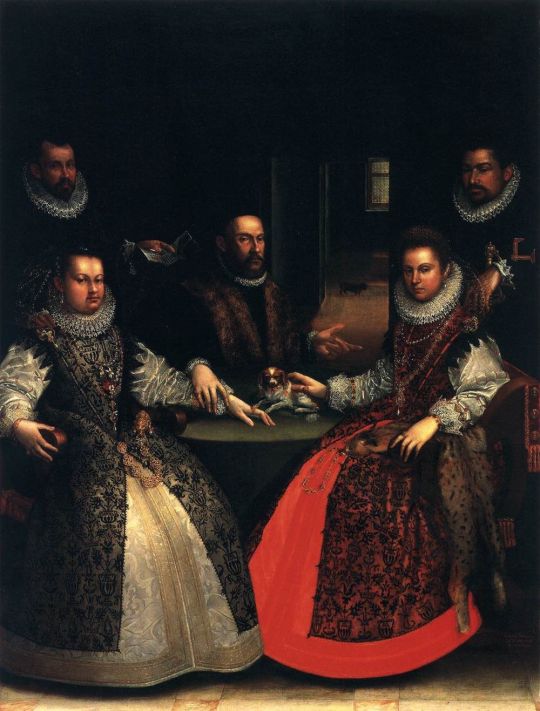
Lavinia Fontana ne souhaite cependant pas se limiter aux portraits. Elle réalise des tableaux religieux, notamment un Noli me tangere en 1581 (Galerie des Offices, Florence). Passer ce cap est une première étape sur son ascension : elle attire finalement l’attention du pape Grégoire XIII qui lui commande un portrait (non daté). Malgré le soutien pontifical, son œuvre est victime de controverses liées à son genre. En 1600, le cardinal d’Asconti lui commande en effet un grand tableau d’autel pour l’église Sainte-Sabine à Rome. Cette décision provoque de nombreuses polémiques : qu’une femme exécute des commandes privées passe encore. Mais une commande publique, de si grande échelle de surcroît… Cette idée semble impossible pour de nombreux opposants qui jugent une femme indigne d’une telle responsabilité. Le cardinal, appuyé par le pape, maintient sa décision. Lavinia Fontana, elle, résiste à la pression. Le succès de son tableau est finalement tel qu’en 1603 elle s’installe à Rome.

La peintre poursuit alors son œuvre, alternant portraits privés, tableaux religieux et même mythologiques. Lorsqu’elle peint en 1613 sa Minerve s’habillant (œuvre ci-dessus), elle est l’une des premières femmes à oser la représentation du nu féminin.
À sa mort le 11 août 1614, elle laisse une œuvre de 131 tableaux (dont plusieurs sont malheureusement perdus). Mais au-delà de sa propre création, Lavinia Fontana laisse derrière elle un héritage tout aussi important : le chemin qu’elle a tracé. En étant élue à l’Académie des Beaux-arts de Rome, elle prouve à tout le monde qu’une femme peut être plus qu’une femme d’artiste, mais bel et bien devenir artiste femme.
Pour en savoir plus :
Lavinia Fontana | Renaissance, Female Artist & Bologna | Britannica
Lavinia Fontana : l’artiste peintre du XVIe siècle dont le mari est l’assistant (radiofrance.fr)
Artistes femmes, Flavia Figeri, 2019, Flammarion, p.10-11
Pour voir une œuvre de Lavinia Fontana en France, vous pouvez vous rendre au château de Blois et admirer le portrait saisissant d’Antonietta Gonzalvus, une jeune fille atteinte d’hypertrichose.
#peintre#artiste femme#women artists#women in art#history of art#italy#lavinia fontana#xviiie siècle#xvie siècle
5 notes
·
View notes
Text

Un livre terrible sur les silences : silence d’un père incapable de dire à son fils qu’il l’aime (ni même lui montrer), silence d’un fils abusé par un prêtre, silence d’un prêtre face au père de l’enfant, silence d’une grand-mère qui se sent coupable.
Un livre aussi sur les limites du pardon et de la vengeance.
On touche à l’insoutenable. Ce n’est pas l’histoire de Grégoire Delacourt mais il a été témoin, enfant, de ce camarade qui revenait dans son lit au milieu de la nuit et qui se cachait sous sa couverture en pleurant. Et il priait pour ne pas être le suivant.
Une très belle préface éclairante qui commence comme ça : «En commençant l'écriture de ce livre, je savais que je m'attaquais à la face nord d'une montagne verglacée.
Il n'y aurait pas d'aimable mercière cette fois, pas d'amoureuse éperdue, pas plus que de petite fille qui apprendrait à pardonner à son papa de lui avoir tiré une balle de revolver dans la figure. Et surtout, pas de happy end.
Il n'y aurait que deux hommes. Un Père et un père.
Un face à face. Un règlement de mots. Une boucherie à propos du désir de l'un et de l'interdit de l'autre.
Des frayeurs d'homme, en somme.
Il y aurait mes peurs anciennes d'enfant lorsque l'ombre me couvrait de nuit et de larmes. Il y aurait mes angoisses de père, plus tard - et cette infirmité de ne jamais pouvoir protéger tout à fait ceux qu'on aime.
Il y aurait ce que notre part humaine compte de plus cannibale ou de plus désespéré.
Alors oui, lorsque, après avoir lu la brève quatrième de couverture, cette dame a reposé Mon Père sur la haute pile dressée devant moi au salon du livre de Vannes et qu'elle m'a dit « je ne le prends pas, c’est trop dur », j'ai su que j'étais parvenu au sommet de ma montagne, là où l'on est forcé de regarder en bas, regarder loin ; là où, sans avoir besoin de cligner des yeux, l'on voit tout - la cime des arbres comme les noirceurs qu'ils tentent de masquer, et dans la plaine les hommes qui fuient et au seuil des maisons les femmes qui pleurent. Ainsi, ce qui semblait être « dur » à ma visiteuse de Vannes, c'était de voir. Et donc de savoir. Voir et savoir le mal fait à nos enfants, nos faiblesses à les défendre, l'appétit des ogres. Je crois que tôt ou tard il faut montrer, il faut nommer, car l'imagination est sans fin lorsqu'elle se hasarde du côté du féroce. Je crois aussi qu'en ces temps où la pensée est réglementée et, comme aux heures sombres du monde, la parole suspectée, il est du devoir de l'art de retrouver son rôle d'empêcheur de vivre en rond, de pousser les murs, de cogner, d'évoquer « cette sinistre nouvelle de ce qu'un homme a pu faire d'un autre homme ». Il faut retrouver cette liberté essentielle qui consiste à parler de tout, à montrer tout, cette joie de donner la parole à ceux qui ne l'ont plus car leurs mots en eux sont restés enfouis, car les mots en eux ont été émiettés, et s'il arrive parfois, oh rarement, que quelques-uns parviennent enfin à leurs lèvres, ils ne sont pas cueillis, pas recueillis. »
#photographie#lecture#book#bookaddict#citation#booklover#enfance#eglise#Grégoire Delacourt#mon père#abus
5 notes
·
View notes
Text
Robespierre family timeline
Below is a timeline over the life of Robespierre’s closest relatives between the marriage of his parents up until their deaths because people seemed to drop like flies around him his entire childhood and I felt the need to put some things in order. Most of it is based on information found in La famille de Robespierre et ses origines. Documents inédits sur le séjour des Robespierre à Vaudricourt, Béthune, Harnes, Hénin-Liétard, Carvin et Arras. (1452-1790) (1914) by A. Lavoine, La Jeunesse de Robespierre et la convocation des Etats génétaux en Artois (1870) by J.-A. Paris, Robespierre: a revolutionary life (2010) by Peter McPhee, Robespierre (2014) by Hervé Leuwers, as well as this family tree that I found. If I’m basing something below on anything that’s not in one of these sources, I will include a link to it.
January 2 1758 - The marriage contract between Maximilien Barthélémy François de Robespierre (born 1732, from here on called Maximilien II) [1] and Jacqueline Marguerite Carraut (born 1735) is passed before M. Crépieux and M. Botte, notaries, M. Corroyer, prosecutor, as well as Jacqueline’s mother Marie-Marguerite Carraut (born 1693, née Cornu), father Jacques-François Carraut (born 1701) and younger brother Augustin-Isidore Carraut (born 1737). Maximilien II’s parents Maximilien de Robespierre (born 1694, from now on called Maximilien I) and Marie-Marguerite Françoise de Robespierre (born 1708, née Poiteau) are not present. [2]
January 3 1763 - wedding ceremony between Maximilien II and Jacqueline de Robespierre in the church of Saint-Jean-en-Ronville. Their witnesses are M. Monvoisin, practitioner, M. Corroyer, prosecutor, M. Botte, notary, Jacques-François Carraut and Augustin Carraut.
May 6 1758 - birth of Maximilien Marie Isidore de Robespierre (from here on called Maximilien III). He is baptised in the parish of Sainte-Marie-Madeleine in Arras the same day, with his paternal grandfather standing as godfather and maternal grandmother standing as godmother. [3]
February 5 1760 - birth of Marie Marguerite Charlotte de Robespierre. She is baptisted in the parish of Saint-Étienne in Arras three days later. Her godparents are Gouve Charles-Antoine, King's adviser and prosecutor of the town and city of Arras, subdelegate of the intendant of Flanders and Artois, and Marie-Dominique Poiteau, widow Isambart. [4]
13 January 1761 - marriage between maternal uncle Augustin Isodore Carraut and Catherine Sabine Desplanque (born 1740) in Magnicourt-sur-Canche, Pas-de-Calais. They have five children together, Augustin Louis Joseph (1762), Antoine Philippe (1763 or 1764-1837), Marié Célestine (born 1767 and dead on the same day), Jean-Baptiste Guislain (1768-1797) and Sabine Josephe (1771-1860). [5] The second oldest, Antoine Philippe, will come to play a role in the repression of Arras carried out under Joseph Lebon 1793-1794.
December 28 1761 - Birth of Henriette Eulalie Françoise de Robespierre. She is baptised in the parish of Saint-Étienne in Arras the same day. Her maternal grandfather and paternal grandmother stand as godparents. [6]
April 17 1762 - death of Maximilien I, at the age of 67. He’s buried in the church of Saint-Aubert two days later. The death certificate is signed by his son and Pierre-Grégoire-Marie Enlart, squire, lord of Grandval, adviser to the Provincial Council and Superior of Artois. His widow then retires to the Convent of the Benedictines of the Peace of Arras.
January 21 1763 - birth of Augustin Bon Joseph de Robespierre. He is baptised in the parish of Saint-Étienne in Arras the day after his birth, with his godfather being his maternal uncle Augustin Carraut and godmother the paternal aunt Marie-Marguerite Alexandrine Eléonore Eulalie de Robespierre (born 1736). [7]
July 4 1764 - Jacqueline de Robespierre gives birth to a boy who dies the same day. He is buried in the Saint-Nicaise cemetery, without having received a name. According to Charlotte’s memoirs, Augustin was still with a wetnurse when this happened.
July 16 1764 - death of Jacqueline de Robespierre, a few days before her twenty-ninth birthday. Her funeral is held in the parish of Saint-Aubert the following day. The mortuary act is signed by her brother and Antoine-Henri Galbaut, Knight of Saint-Louis, assistant major of the Citadel. Her husband doesn’t sign it, nor does he attend her funeral. [8]
August 6 1764 - Maximilien II retakes his duties as lawyer at Arras after having spent a few weeks without doing any business. He wins and loses a case that day.
November 16 1764 - the name of Maximilien II ceases to appear on the court register of the Council of Artois.
January 7 1765 - Maximilien II is received as a lawyer at the court of Oisy, about 20 kilometers from Arras, after having been called on by Eustache-Joseph d'Assignies, count of Oisy, to take a prestigious seat there, "on the express condition of taking up residence in said Oisy and not being able to demand from us any sums for fees in criminal cases” eight days earlier. By then, his four children have been dispersed among relatives, Charlotte and Henriette are taken care of by their unmarried paternal aunts Eulalie (born 1735) and Henriette (or are they? [9]), while Maximilien III and Augustin are sent to live with their maternal grandparents. [10] Maximilian II will not retain his functions at Oisy forever however, as the same manuscript which contains his commission also registrates the appointment of his replacement for July 15 1765.
March 13 1765 - Maximilien II is back in Arras (four months before his position at Oisy expires) pleading a case, which carries on all the way into December of the same year. [11]
March 22 1766 - Maximilian II borrows seven hundred livres from his sister Henriette. It would appear he never paid them back, which led to some tension between Henriette, her husband and Maximilien III in 1780. [12]
1766 - Maximilien III is enrolled at the Collège of Arras as a day-student.
October 30 1768 - Maximilien II resigns from any inheritance whatsoever from his mother. [13]
December 30 1768 - Charlotte de Robespierre is enrolled at Maison des Sœurs Manarre, “a pious foundation for poor girls, who may be admitted from the age of nine to eighteen, to be fed, brought up under some good mistress of virtue and to improve oneself in lacing and sewing or in another thing which one will judge useful; to learn to read and write until they are able to serve and earn a living." It is situated just across the border in Tournai (modern-day Belgium). Charlotte is actually a few months too young to actually be enrolled, but an exception seems to be made in her case. According to La famille de Robespierre et ses origines…, it was Charlotte’s godfather Charles-Antoine de Gouve that had enough influence to obtain this favour for her.
September 13 1769 - Maximilien III obtains a scholarship from the abbot of Saint-Vaast to the college of Louis-le-Grand in Paris.
October 13 1769 - Maximilien III is enrolled at Louis-le-Grand.
May 17 1770 - death of Marie-Marguerite Françoise de Robespierre, aged 62. She is buried in the church of Saint-Aubert two days later in the presence of of M. Sébastien-Fidel de Douay, de Baisne, priest, law graduate, and Antoine de Gouve, bourgeois annuitant witnesses. The death certificate is signed by the two latter.
June 8, 1770 - Maximilien II confirms his resignation from the inheritance of his mother, after being informed about her death by his sisters. He is then in Mannheim, Germany. [14]
May 3 1771 - Henriette de Robespierre is sent to join her sister at Maison des Sœurs Manarre, where she stays as a boarder while waiting for a scholarship to become vacant.
October 3 1771 - Maximilien II, back in Arras, affirms he doesn’t want any of his mother’s inheritance yet again. [15]
February 17 1772 - the name of Maximilien II reappears on the court register of the Council of Artois.
June 4 1772 - the name of Maximilien II ceases to appear on the court register of the Council of Artois. There’s no sign of his activities in the town after this.
June 4 1773 - Henriette de Robespierre becomes a scholarship student at Maison des Sœurs Manarre. [16]
June 13 1775 - Death of Marie Marguerite Carraut, aged 83.
January 7 1776 - Marriage between Eulalie de Robespierre and Robert-François Deshorties, merchant and royal notary in Arras. [17]
February 11 1777 - Marrige between Amable Aldegonde Henriette de Robespierre and Gabriel-François Durut, student in Montpellier, doctor of medicine in Arras, doctor at the College d’Oratoire. Their marriage, as well as the one between Eulalie and Deshorties, appears to have been childless, making the Robespierre siblings cousin-less on their father’s side.
November 6 1777 - Maximilien II is buried in Munich, aged 45. His children most likely didn’t find out about his death.
March 14 1778 - death of Jacques François Carraut, aged 77. He’s buried two days later in the parish of Saint-Jean-en-Ronville in Arras. His brewery is sold to his son Augustin for a total of 8242 livres, of which only half goes to the four orphans.
March 5 1780 - Henriette de Robespierre is buried. Her uncle Augustin Carraut and the canon Poulain are the only ones present at her funeral.
May 15 1781 - Maximilien III graduates from Louis-le-Grand and returns to Arras to work as a lawyer. He and Charlotte move into a house on Rue du Saumon.
October 11 1781 - Augustin gains a scholarship to Louis-le-Grand. He begins his studies there on November 3 the same year. All sources I’ve found agree that Augustin was studying at the College of Duoai before getting sent to Paris, but unfortunately none of them mention when exactly he was enrolled there.
Late 1782 - Maximilien II and Charlotte are forced to leave Rue du Saumon when the latter realizes his lawyer salary can’t cover the rent. They instead move in with their aunt Henriette and her husband Durut on Rue Teinturiers, and evantually from there to Rue des Jésuites.
1787 - Maximilien II and Charlotte move to Rue des Rapporteurs 9.
September 30 1787 - Augustin graduates from Louis-le-Grand and moves in with his siblings.
April 17 1791 - death of Amable Aldegonde Henriette de Robespierre in Arras, aged 55.
September 3 1791 - death of Eulalie de Robespierre in Arras, aged 54.
December 6 1792 - death of Robert-François Deshorties in Arras.
November 17 1815 - death of Augustin Carraut in Arras, Pas-de-Calais, aged 78.
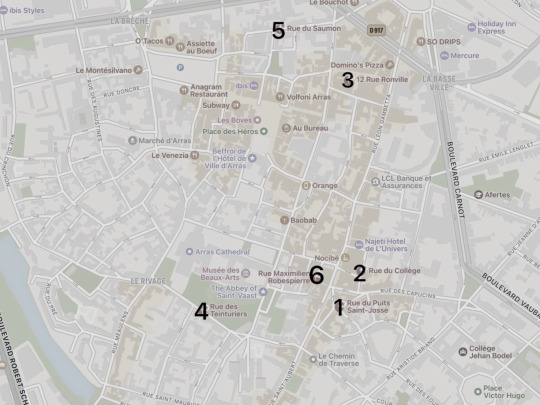
Rue du Puits Saint-Josse, where Maximilien I lived at the time of his death in 1762
Rue des Jésuites (today Rue du Collége) where the Robespierres lived by the time of Augustin’s birth in 1763. The family moved around a lot, in four years it changed residence four times and lived successively in the parishes of St-Géry, Ste-Marie Madeleine, St-Etienne and St-Aubert. Amable-Aldegonde-Henriette de Robespierre’s husband Durut also became tenant of a house on this road in 1783, for an annual rent of 300 livres.
Rue Ronville, where Jacques-François Carraut had his brewery, and where Maximilien III and Augustin moved in 1764.
Rue des Teinturiers, where Amable-Aldegonde-Henriette de Robespierre and her husband Durut lived before 1783. This is likely the place where Henriette de Robespierre passed away in 1780. Maximilien III and Charlotte took up lodgings there in late 1782, after the former realized he could not afford to pay their rent.
Rue du Saumon, where Maximilien III and Charlotte rented a recidence before moving in with their aunt and uncle in 1782. When Maximilien’s income increased, they moved again, to Rue des Jésuites this time.
Rue des Rapporteurs (today Rue Maximilien Robespierre), where Maximilien III and Charlotte moved in 1787. They were soon joined by Augustin.
[1] There is some controversy regarding Robespierre’s father’s actual firstname, since there exists one document describing him as Barthélémy-François, and another one as just Barthélémy (although ironically, it’s more common among authors to call him François and not Barthélémy). Historian Hervé Leuwers still insists that his real firstname seems to be Maximilien, as it’s what his contemporary Abbé Proyart calls him in his La Vie et les Crimes de Robespierre: surnommé le tyran: depuis sa naissance jusqu’au sa mort (1795), as well as the only name indicating his inhumation in 1777.
[2] ”As for the the groom, M. Corroyer, in his capacity, has promised to give him the sum of two thousand livres, either in money or in constituted annuities, as soon as the marriage has been celebrated... As for the the bride, her father and mother have promised to give her a sum of five thousand livres payable, namely: two thousand livres immediately after the celebration of the marriage, one thousand livres one year after said celebration and thus continue on with one thousand livres per year until the final payment of the said sum of five thousand livres. The marriage was celebrated in the presence of Jacques Francois Carraut; Monvoisin, practitioner; Corroyer, attorney; Botte, notary, and Carraut the younger.”
Wedding contract from January 2 1758, cited in La Jeunesse de Robespierre…, page 13
[3] ”The sixth of May, 1758 was baptized by me the undersigned Maximilien-Marie-Isidore, born the same day at two o'clock in the morning in the legitimate marriage of M. Maximilien-Barthélemy-François Derobespierre, lawyer at the Council of Artois , and demoiselle Jacqueline Carraut. The godfather was M. Maximilien Derobespierre, grandfather on the paternal side, lawyer at the Council of Artois, and the godmother, demoiselle Marie-Margueritte Cornu, wife of Jacques-François Carraut, grandmother on the maternal side. These have signed.
Derobespierre. Marie-Marguerite Cornu.
Derobespierre. Lenglade, priest.”
Cited in Robespierre et les femmes, d’apres des documents inédits et des pieces inédits (1909) by A. Michel, page 20
[4] ”Today is the eighth day of the month of February, the year 1760. We priests of the parish of Saint-Étienne of towns and Diocese of Arras, have supplemented the ceremonies of the baptism for a girl born around half past two in the afternoon in said parish in the legitimite marriage of maître Maximilien-Barthélemy-François de Robespierre, lawyer at the Provincial Council of Artois, and of demoiselle Jacqueline-Margueritte Carraut, her father and mother; she was delivered by us parish priest the day after her birth, six of the same month and year as above, with the permission of the bishopric dated the same day signed by Le Roux, vicar general, and below, by ordinance Péchena. The godfather was master Charles-Antoine de Gouve, adviser to the King and his attorney for the town and city of Arras, subdelegate of the intendant of Flanders and Artois, in the department of Arras, of the parish of Saint-Jean in Ronville, and the godmother demoiselle Marie-Dominique Poiteau, widow of Sieur François Isambart, procurator to the said provincial council of Artois, of the parish of Saint-Aubert, who gave her the name Marie-Marguerite-Charlotte, and who signed with us the parish priest, and the father here present, the same act on the day and year mentioned above. The child was born on the fifth.
Marie Dominique Poiteau
De Gouve
Derobespibrre
Willart, parish priest of Saint-Etienne.”
Cited in Ibid, page 323-324
[5] I had a hard time finding any reliable info regarding dates of birth (and death) for Robespierre’s five cousins. I found one article from 1991 about them as well as one on WikiTree, however, the two give different dates of birth for some of the children.
[6] “Today, the twenty-eighth day of the month of December, 1761, we priests of the parish of Saint-Étienne, of the town and diocese of Arras, have baptized a girl born on the same day in this parish of Saint-Étienne around six o'clock in the morning in the legitimate marriage of Maître Maximilien-Barthélemy-François de Robespierre, lawyer at the Provincial Council of Artois, and demoiselle Jacqueline-Marguerite Carrant, her father and mother our parishioners. The godfather was sieur Jacques-François Carraut, wholesale merchant brewer of the parish of Saint-Jean en Ronville, maternal grandfather to the child and the godmother demoiselle Marie-Marguerite-Françoise Poiteau, wife of master Maximilien de Robespierre, lawyer at said Provincial and Superior Council of Artois, of the parish of Saint-Aubert, paternal grandfather to said child, who gave her the name Henriette-Eulalie-Françoise and who signed with us parish priest, the same act as well as the father here present at said Arras on the aforesaid day, month and year.
Jacque (sic) François Carraut
Poiteau de Robespierre
Derobespierre
Willart, curé de Saint-Eteinne”
Cited in Robespierre et les femmes… (1909), page 326-327
[7] ”Today, the twenty-second day of the month of January of the year 1763, we priest of the parish of Saint-Étienne des Villes and diocese of Arras have baptized a boy born the day before, about two o'clock in the afternoon, the twenty-first of the same month and year, on this said parish in the legitimate marriage of master Maximilien-Barthélemy-François de Robespierre, lawyer at the Provincial Council of Artois and demoiselle Jacqueline-Margueritte Carraut, his father and mother our parishioners. The godfather was Augustin-Isidore Carraut, merchant of the parish of Saint-Jean en Ronville, maternal uncle of the child, and the godmother demoiselle Margueritte-Alexandrine-Éleonore-Eulalie de Robespierre of the parish of Saint-Aubert, paternal aunt of said child, who gave him the name Augustin-Bon-Joseph and who signed the same act with us as priest as well as the father here present on the days, months and year mentioned above.
Carraut
Eulalie de Robespierre
Derobespierre
Willart, curé de Saint-Eteinne”
Cited in Ibid, page 327-328
[8] ”Demoiselle Marguerite-Jacqueline Carraut, aged twenty-nine or thereabouts, wife of M. Maximilien-Barthélemy-François Derobespierre, lawyer at the Provincial and Superior Council of Artois, died on the sixteenth of July in the year 1764; the service was held on the seventeenth, followed by her burial in this church, those present were the sieurs Antoine-Henry-Galhaut, knight of the royal and military order of Saint-Louis, aide-major by patent of the citadel of Arras, and Auguste-Isidore Carraut, brother of the deceased, who signed with us as parish priest.
Galhaut. De Lacroix, priest
Carraut.”
Cited in Ibid, page 323-324
[9] According to La famille de Robespierre et ses origines. Documents inédits sur le séjour des Robespierre à Vaudricourt, Béthune, Harnes, Hénin-Liétard, Carvin et Arras. (1452-1790) the paternal aunts Eulalie and Henriette retired to Convent of the Benedictines of the Peace of Arras with their mother when the latter was widowed in 1762, where they would not have been able to provide for their nieces. The article instead implies all four children were taken in by their maternal grandparents, which it also uses to explain why Charlotte was enrolled at Maison des Sœurs Manarre despite being a few months too young to actually be admitted, and why Henriette was enrolled without having a scholarship — their grandparents simply had to quickly send them away since they couldn’t provide for all children. However, it doesn’t cite a source for the aunts’ alleged move, and both Leuwers and McPhee list the article as one of their sources while still writing Charlotte and Henriette went to live with their aunts, so I’m not sure about this.
[10] In his biography, Peter McPhee claims Maximilien III was also looked after by two maternal aunts. However, I’ve not managed to track down any information whatsoever on these, and the few Carraut family trees I’ve found only mention Jacqueline, Augustin and a third brother named Jean-Baptiste who probably died young since more or less no info exists regarding him. Worth noting is also that Mcphee says the maternal aunts were called Eulalie and Henriette, which were the names of the paternal aunts as well… This confusion is most likely a result of poor choice of wording by Abbé Proyart in his La Vie et les Crimes de Robespierre: surnommé le tyran: depuis sa naissance jusqu’au sa mort (1795) — ”Not being heir to any patrimony, he (Robespierre) had no resources for his subsistence except those which could be procured for him by the honest brawler Carreau (sic), his grandfather, and the charity of good people, which were quite efficiently encouraged by two aunts of the same name, who lived in a great reputation for piety.” Proyart most likely means the aunts were of the same name as Robespierre and not his grandfather, which is supported by the fact that he then claims one of them married a doctor, just like Eulalie de Robespierre did.
[11] On December 9 the same year, Maximilien II wrote a a letter to his fellow lawyer Maximilien Baudelot, in which he identified himself as a lawyer of Arras while trying to get them to all come together and publicy plead for the betterment of the the dauphin, who died eleven days later. This confirms he was still active in Arras at this point.
[12] ”Hearing of April 4, 1780: M. Corne, for François-Gabriel Durut, doctor of medicine, and Amélie-Aldegonde-Henriette Derobespierre, his wife; Against François-Maximilien-Barthelemy de Robespierre; Gentlemen give default against François-Maximilien Robespierre and for the benefit, hold the signature affixed by the defaulting party at the bottom of a recognition of March 22 1766 which it is about for recognized; Consequently, we condemn said defaulting party to pay to the parties of the attorney Corne, for one part, the sum of seven hundred and eleven livres ten sols, centenary in said recognition, and for another part, the sum of one hundred livres paid in his acquittal to the notary Husson, for pension provided to him according to the receipt of March 14, 1772 and in question, in the interest of the sums quoted from the day of the judicial demand and at the costs, liquidated at fifteen livres eighteen sols eight denarii.”
Cited in Mémoires de l’Académie des sciences, lettres et arts d’Arras, series 11, volume 3, page 56-57.
[13] ”I, the undersigned, lawyer at the Provincial Council of Artois, renounce, for the benefit of my sisters, my rights and shares in the movable and immovable estates of my mother, acknowledging that I have received from said mother beyond the share that I could claim, both for me and for my children.
Written at Arras, the thirtieth day of October, 1768
(Signed): DEROBESPIERRE”
Cited in La famille de Robespierre et ses origines. Documents inédits sur le séjour des Robespierre à Vaudricourt, Béthune, Harnes, Hénin-Liétard, Carvin et Arras. (1452-1790)
[14] ”I, the undersigned, lawyer at the Provincial Council of Artois, hereby renounce for the benefit of my sisters all rights and shares in the movable and immovable estates of my late mother, acknowledging that I have received from said mother beyond the share that I could claim, both for me and for my children.
Written at Mannheim, June 8, 1770”
Cited in Ibid
[15] ”Before the undersigned royal notaries of Artois appeared M. Maximilien-Barthélemy-François de Robespierre, lawyer at the Superior Council of Arras, residing in said Arras.
Who recognized that, by an act made under his private signature, in the city of Mannheim, on the eighth day of June 1770, he declared that he renounced the movable and immovable successions of lady Marie-Marguerite-Françoise Poiteau, his mother, at the time of her death widow of M. Maximilien de Robespierre, lawyer at the Council of Artois. But, having since considered that this renunciation could not have its effect, considering that at that time, he did not have full and complete knowledge of the forces of said succession and that, since his return to this town, three months ago, he has taken perfect knowledge of said estates by inspecting the letters and papers abandoned by said mother, which Marie-Marguerite-Alexandrine-Eléonore-Eulalie and Amable-Aldegonde-Henriette de Robespierre, his sisters, represented and entrusted to him. This is why said sieur appearing has, hereby, declared to renounce said successions and to claim nothing hereunder, giving power to the bearer of the bulk hereof to reiterate where and to whom it will belong. And just now said ladies Marie-Marguerite-Alexandre-Eléonore-Eulalie and Aimable-Aldegonde-Henriette de Robespierre have appered; these have recognized that said sieur de Robespierre, their brother, has given them the titles and papers mentioned herein.
Passed in Arras, the third of October, 1771.
(Signed): de ROBESPIERRE; de ROBESPIERRE, the older; de ROBESPIERRE, the younger,
(and as notaries): MERCHIER, HUSSON.
Cited in Ibid
[16] “To Messeigneurs, Messeigneurs the Treasurer-General, Councilors and Clerks of the Estates and Finances of H. M. the Dowager Empress and Apostolic Queen of Hungary, Bohemia, etc. Begs in very deep respect Henriette-Josephe de Robespierre, native of the town of Arras, ten years old, saying that, in the hope of being received in the foundation of the demoiselles Manarre, in the town of Tournay, like her sister was, she would have boarded there from the month of May 1771 and remained there until now, and done all the duties to which are held those provided with this foundation to the satisfaction of the superiors. However, although there is a place which must be vacant towards the month of July this year, the Administrators of it are having difficulty in receiving it, obsanting certain regulations by which it would be said that there would only be the subjects of your Sacred Majesty who would be admitted there; but, as it does not present itself up to now, and that that which must leave there is also a foreign subject who was received there; she takes the very respectful liberty of addressing Your illustrious Lordships, My Lords, for your pleasure, taking favorable account of the pension expenses which she has paid since said day, May 3, 1771, and of the useful and advantageous qualities which she possesses for the good of the house, permit the Administrators to there receive the supplicant with the ordinary charges. It's grace... , etc.”
Cited in La Jeunesse de Robespierre, page 19
[17] Deshorties was the widower of Marie-Jeanne Langlet, with who he had two sons and three daughers. According to Charlotte, Maximilien III had been courting one of these daughters, Anaïs, for two to three years at the time of the Estates General, and there were marriage plans between the two.These were however broken up by the revolution and Anaïs instead got engaged to another lawyer, Léandre Leducq, who she married on August 7 1792. Another one of the children was Régis Deshorties, who kept up contacts with the Robespierres during the revolution. Here is a letter from him to Augustin written on July 18 1794.
#maximilen robespierre#robespierre#augustin robespierre#charlotte robespierre#henriette robespierre#frev
19 notes
·
View notes
Text
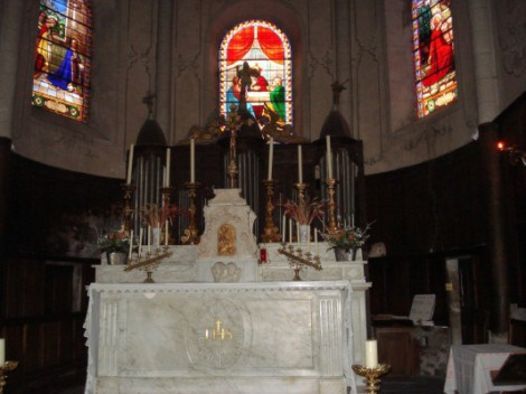
Eglise Saint-Grégoire
Classée « Monument historique » le 30 mai 1931, l’église est placée sous le vocable de saint Grégoire.
Cette église a été construite entre 1640
Quand on voulut lui donner comme titulaire saint Grégoire on s’aperçut qu’il n’était pas canonisé. L’affaire était sans doute en bonne voie d’aboutissement à Rome car ce souhait fut rapidement accepté par le Pape Innocent X.
1 note
·
View note